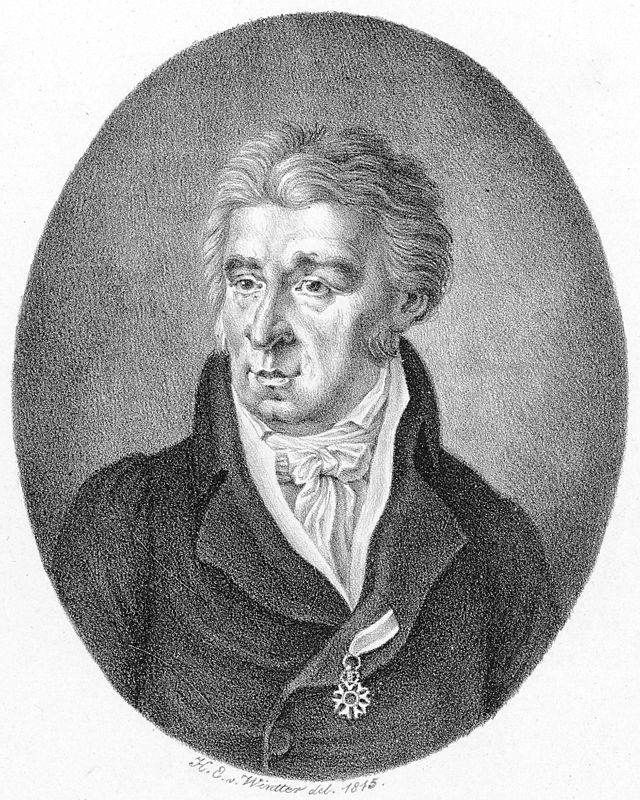Loading AI tools
From Wikipedia, the free encyclopedia
Das Labyrinth oder Der Kampf mit den Elementen. Der Zauberflöte zweyter Theil ("The Labyrinth or The Struggle with the Elements. The Magic Flute's Second Part") is a "grand heroic-comic opera" in two acts[1] composed in 1798 by Peter von Winter to a German libretto by Emanuel Schikaneder. The work is in the form of a Singspiel, a popular form that included both singing and spoken dialogue. The opera is a sequel of Mozart's The Magic Flute.
| Das Labyrinth oder Der Kampf mit den Elementen. Der Zauberflöte zweyter Theil. | |
|---|---|
| Opera by Peter von Winter | |
 Julia Novikova as Queen of the Night at the Salzburg Festival 2012 | |
| Librettist | Emanuel Schikaneder |
| Language | German |
| Premiere | |
The opera premiered at the suburban Freihaus-Theater auf der Wieden in Vienna on 12 June 1798. Schikaneder himself played Papageno, while the role of the Queen of the Night was sung by Mozart's sister-in-law Josepha Hofer-Mayer. Schikaneder was the librettist of Mozart's opera and he was considered to have been "one of the most original and most influential theatre persons of his time".[2] Both artists were reprising their roles from The Magic Flute.
Alexandra Liedtke, the director of the Salzburg Festival production in 2012, interpreted the story and Schikaneder's libretto "as one [of] the great fairy tales of history [...], in which the emblematic and the playfulness are standing in the limelights".
The opera was then also performed at the Theater an der Wien and the Konzerthaus Berlin (1803), the Opern- und Schauspielhaus Frankfurt (1806), the Staatstheater Nürnberg (1807) and other venues. In 1978, there was a production without spoken dialogue in an unauthentic musical arrangement, conducted by Wolfgang Sawallisch, directed by August Everding, stage design by Jürgen Rose in the Cuvilliés Theatre, Munich, and in September 2002 it was performed at Chemnitz Opera.
In August 2012, the opera was presented for the first time at the Salzburg Festival, in the courtyard of the residence of the Prince Archbishop of Salzburg, conducted by Ivor Bolton and directed by Alexandra Liedtke.[3][4]
In October 2013, the opera was performed in USA for the first time, by New York City's Amore Opera, the small opera company which emerged after Amato Opera closed.[5]


| Role | Voice type | Premiere cast, 12 June 1798 (Conductor: –) |
|---|---|---|
| Sarastro | bass | Sebastian Mayer |
| Queen of the Night | soprano | Josepha Hofer-Mayer |
| Pamina, her daughter | soprano | |
| Tamino | tenor | |
| Papageno | baritone | Emanuel Schikaneder |
| Papagena | soprano | |
| First Lady (later: Venus) | soprano | |
| Second Lady (later: Adonis) | mezzo-soprano | |
| Third Lady (later: their Page) | contralto | |
| Three Genii | treble, mezzo-soprano, contralto | |
| Monostatos, a moor | baritone | Jakob Haibel |
| Tipheus, King of Paphos | baritone | |
| Sithos, his friend | bass | |
| High priestess | actress | |
| Two priestesses | actresses | |
| Gura, a moor | actress and dancer | |
| Papageno, Papagena the older | bass, contralto | |
| Two priests | tenor, bass | |
| Two guards of the labyrinth | tenor, bass | |
| Some priests and priestesses, some combatants of Tipheus, several little Papagenos and Papagenas, various moors, and other folk | ||

After fighting against fire and water there are still two elements for Pamina and Tamino which are not defeated: the air and the earth. Tipheus tries to divorce the engaged couple and Monostatos tries to force the love of Papagena. Papageno is meeting his parents and siblings.
There is another sequel to the original Magic Flute, also named Der Zauberflöte zweyter Theil, a libretto fragment by Johann Wolfgang von Goethe, intended to be set to music by Paul Wranitzky.
Seamless Wikipedia browsing. On steroids.
Every time you click a link to Wikipedia, Wiktionary or Wikiquote in your browser's search results, it will show the modern Wikiwand interface.
Wikiwand extension is a five stars, simple, with minimum permission required to keep your browsing private, safe and transparent.